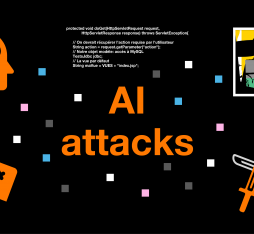Trust has become the watchword as debates around the use of data and privacy have proliferated. Generating and maintaining that trust are fundamental issues when it comes to obtaining user consent. This fundamental requirement is equally valid for algorithms, which get less attention and yet are equally present, especially as they are the bedrock of artificial intelligence systems.
The ferment around algorithms
Fact: debates in France and Europe have long tended to crystallise around the question of data. But in recent months we have seen the emergence of particular attention being paid to algorithms on the strength of phenomena that have garnered widespread media coverage. One such is the “filter bubble” used by search engines or social media to push content to users based on their individual profiles, their usage, and their data history. More recently, there was the outcry in France about the Admission Post Bac (APB) algorithm, which helps place students on university courses, but was criticised for its relative opacity. Traceability and the ability to explain the decisions taken by an algorithm are key to trust, however.
Are algorithms contaminated by biases?
“The first systems to use artificial intelligence, known as expert systems, included rules that were set by the developers, and therefore were easily verifiable,” explains Laurence Devillers, a researcher at the French National Centre for Scientific Research (CNRS), a professor of Artificial Intelligence at the Paris-Sorbonne University, and a member of CERNA (the Allistène Committee for the ethics of digital search). “As the technology became more sophisticated, statistical learning emerged, where the mass of data gradually replaced human knowledge. With machine learning, the machine analyses the data supplied to it and takes decisions based on those data. Yet bias can be introduced by the data, or even by the developers when developing the algorithm. Shape recognition software programmed to identify the photo of an animal or an objet, may not be able to do its job when the animal is shown in a different environment or when a few pixels are deleted from the photo.” Through lack of awareness of these biases, beliefs may be manipulated and projected – even unconsciously – and ultimately be detrimental to consumer information. The human factor is more necessary than ever in order to ensure that such biases do not result in a loss of control over the machines. It is necessary to educate people on these topics. A CERNA report on the ethics of machine learning research is now available.
Algorithms that are accountable by design
But the regulation and transparency of algorithms could also be overseen by other algorithms. This is the avenue being explored on the Trans Algo science platform by Nozha Boujemaa, a Research Director at INRIA and Dean of the DATAIA Institute: Data science, Artificial Intelligence and Society. “The subject area of transparency in algorithmic systems is very new and involves many challenges in terms of R&D. The ultimate objective of the platform is to develop algorithms that can audit the behaviour of other algorithms and promote the concept of algorithms that are “accountable-by-design” and comply with ethical and legal rules right from the design stage. The idea behind this is to end the information asymmetry that arises between the designer of an online service and its consumer, whether ordinary citizen or professional. Ensuring transparency in the data used by algorithms and also in the “explicability” of their behaviour along with the criteria underpinning their decisions is essential, for example, when a Satnav system recommends a particular itinerary. How will you know whether the itinerary has been set because it is the fastest or because it will take us past places of commercial interest?”
The new ethical safeguards will soon be available to restore transparency, fairness and faith in algorithms and to create an environment of trust for an “algo-compatible” social life.
“We have to put a stop to information asymmetry between those who design online services and consumers in order to restore trust in algorithms.”






